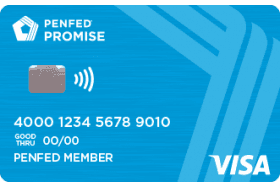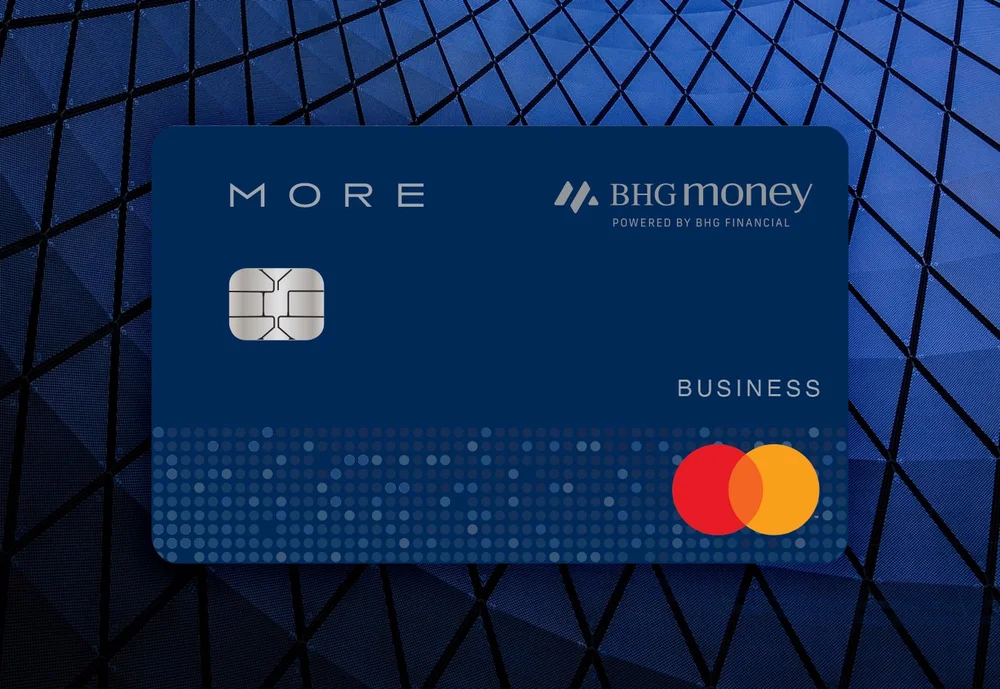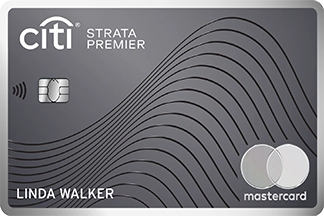- myFICO® Forums
- FICO Scoring and Other Credit Topics
- Understanding FICO® Scoring
- Re: flawed FICO scoring system
- Subscribe to RSS Feed
- Mark Topic as New
- Mark Topic as Read
- Float this Topic for Current User
- Bookmark
- Subscribe
- Mute
- Printer Friendly Page
flawed FICO scoring system
Is your credit card giving you the perks you want?
Browse credit cards from a variety of issuers to see if there's a better card for you.
- « Previous
- Next »
- Mark as New
- Bookmark
- Subscribe
- Mute
- Subscribe to RSS Feed
- Permalink
- Report Inappropriate Content
Re: flawed FICO scoring system
In order not to further annoy Revelate, for whom I have unbounded respect, this will be my final comment in this thread.
OP is a man in his 80's who paid off his mortgage, and lost around 30 points on his FICO score for doing that.
He felt wronged by that, and I agree.
IMHO it is a flaw in FICO8 that in several respects it penalizes someone for not having current debt regardless of their credit track record.
Yes if you've studied the MyFICO Forums you've learned some workarounds for those flaws, but the vast majority of consumers likely have not studied MyFICO Forums.
It has been discussed that FICO9 will reduce that penalty, insofar as it applies to installment debt.
I hope it does, and it will be a better algorithm if it does.































Total revolving limits 568220 (504020 reporting) FICO 8: EQ 689 TU 691 EX 682
- Mark as New
- Bookmark
- Subscribe
- Mute
- Subscribe to RSS Feed
- Permalink
- Report Inappropriate Content
Re: flawed FICO scoring system
@Anonymous wrote:The simple truth is that if you pay off your debt your FICO score goes down. This encourges people to keep their debt high, make regular payments including paying off the balance of every credit card purchase every month. This process is not the same as using your debit card. A debit card is the same as cash. Believe me I have gone both ways and using a debit card did not give me a high credit score. My FICO score was a close to 850 as you could get without being 850. When I paid off my mortgage my FICO dropped to 816. But I saved $16,000 in future interest payments. That was a no brainer but lowering my debt decreased my FICO. High debt equates to high FICO and encourages debt that is maintained without any penalties.
Incorrect. High debt doesn't equate to high FICO. Showing that you can manage debt equates to high FICO. A guy that owes $300k on a $350k mortgage has higher debt than a guy that owes $5k on a $350k mortgage... which has the higher FICO score? A guy that has $100k of available revolving credit that has combined balances of $70k or 70% utilization has significantly higher debt than someone that has the same $100k of available credit that carries a balance of $200. Which guy has the higher FICO score?
No one is "encouraged to keep their debt high" - if people want the maximum FICO score the only thing they are encouraged to do is utilize the system. Owing a 10 bucks on a $500 share secure installment loan and letting a dollar report on a credit card to show usage and ability to manage. This guy has $11 of "debt" but is maximizing his score and can achieve 800+ scores but he's encouraged to have "high debt" in your eyes? Really?
And for the who knows how many-ith time in this thread, there is no real world difference between a 810 FICO score and a 840 FICO score. People are getting far too caught up on the number and not the actual facts. The meat an potatoes of it is that both scores are equally strong and can get you whatever you want credit wise. You guys remind me of when I do annual employee reviews. 90 reviews or so, and almost everyone gets caught up on the score more than the actual meat and potatoes of the review. Someone worries about how they got a 3.6 score but their co worker got a 3.7 and they can't get past the scoring difference, "it doesn't make sense" and they lose sight of the entire purpose of a review. There are different weighted categories, etc. and it doesn't mean the 3.7 person is necessarily "better" than the 3.6 but you can't tell them that I don't find this discussion much different, to be honest.
- Mark as New
- Bookmark
- Subscribe
- Mute
- Subscribe to RSS Feed
- Permalink
- Report Inappropriate Content
Re: flawed FICO scoring system
@SouthJamaica wrote:My position is simply this: all other things being equal, having current debt does not make one more creditworthy than someone who has no current debt.
You keep confusing "having" with "managing."
I think another way that you should consider looking at the OP's situation and score is that he's not getting "punished" for paying off his loan but rather is no longer being "rewarded" for having an open current installment loan in terms of FICO scoring.
Everyone agrees that a 760+ score is excellent and just as meaningful and impactful in lending decisions as a perfect score. The OP already had an excellent score and was simply given more points from FICO because he had an open installment loan. Without the loan being current, less extra points are given.
Also, someone can correct me if I'm wrong, but even once you close an installment loan it obviously remains on your account for X number of years and I believe positively impacts your score (above not having an installment loan, ever, on your report). I know this positive impact isn't as great as having a current good-standing installment loan reporting, but I do recall reading that credit is given for paid in full installment loans that are still on your report.
- Mark as New
- Bookmark
- Subscribe
- Mute
- Subscribe to RSS Feed
- Permalink
- Report Inappropriate Content
Re: flawed FICO scoring system
"This is simply not true. High debt often is associated with very low Fico scores." Sorry but you are not thinking straight. . High debt can most often result in very high credit scores. Lets take Joe for example. He has a actual debt of $5000 in credit cards and makes monthly payments with interest.but has purchase power of $50,000 on those credit cards. He also has a mortgage of $500,000 but has no late payment for all of the time he has that mortgage, lets say 15 years. Joe will have a FICO score of over 800. But if Joe is late on a mortgage payment and a couple of credit card payments his FICO score will be in the dump. That's simply how it works. The more debt you have and maintain without any missed payments the higher your FICO score.
- Mark as New
- Bookmark
- Subscribe
- Mute
- Subscribe to RSS Feed
- Permalink
- Report Inappropriate Content
Re: flawed FICO scoring system
@Anonymous wrote:"This is simply not true. High debt often is associated with very low Fico scores." Sorry but you are not thinking straight. . High debt can most often result in very high credit scores. Lets take Joe for example. He has a actual debt of $5000 in credit cards and makes monthly payments with interest.but has purchase power of $50,000 on those credit cards. He also has a mortgage of $500,000 but has no late payment for all of the time he has that mortgage, lets say 15 years. Joe will have a FICO score of over 800. But if Joe is late on a mortgage payment and a couple of credit card payments his FICO score will be in the dump. That's simply how it works. The more debt you have and maintain without any missed payments the higher your FICO score.
Incorrect, AGAIN.
You are inflating numbers in an attempt to support your argument, but it doesn't hold water and in fact you're making the converse argument. "Joe" in your example could very well have a FICO score over 800 with hundreds of thousands of dollars of debt. However, if Joe pays down his $5000 credit card debt to $1 and pays down his however-many-hundreds-of-thousands-of-dollars left on his mortgage to 1% of the original balance, his scores will be HIGHER than the example you gave.
So, using your OWN example, LOWER DEBT equates to a better FICO score. "Joe" is in no way "encouraged" to have high debt by the FICO system.
- Mark as New
- Bookmark
- Subscribe
- Mute
- Subscribe to RSS Feed
- Permalink
- Report Inappropriate Content
Re: flawed FICO scoring system
@Anonymous wrote:"This is simply not true. High debt often is associated with very low Fico scores." Sorry but you are not thinking straight. . High debt can
most oftenresult in very high credit scores. Lets take Joe for example. He has a actual debt of $5000 in credit cards and makes monthly payments with interest.but has purchase power of $50,000 on those credit cards. He also has a mortgage of $500,000 but has no late payment for all of the time he has that mortgage, lets say 15 years. Joe will have a FICO score of over 800. But if Joe is late on a mortgage payment and a couple of credit card payments his FICO score will be in the dump. That's simply how it works. The more debt you have and maintain without any missed payments the higher your FICO score.
Why carry any debt on credit cards and be subject to interest payments? Carryover is not needed. Just need to use a card, allow a statement to report some non zero balance and then pay the balance in full - no carryover.required.
A mortgage is not needed on file to maximize credit score. Any type of installment loan showing positive payment history over time demonstrates the desired behavior. The original loan amount can be rather small. A $5,000 car loan being paid off over 5 years can be just as effective as a $500,000 mortgage paid off over 15 years - which is 1% of the debt of a mortgage.
Yes, building up credit limits makes it easier to keep utilization low without potentially needing to make payments prior to a statement cutting. However, even that's not necessary if you like using debit cards. Example:
Tom has 3 credit cards with credit limits of $1500, $2500 and $5000 [total $9000]. He also has a debit card tied to an account where he maintains a $25k balance. He is a heavy spender and burns through $4000 per month on plastic. How does Tom maximize score:
1) Use a credit card monthly and allow under 9% to report on a monthly credit card statement. Then pay the statement in full to avoid interest charges.
2a) Charge the remainder of the $4000 on a debit card or...
2b) Charge the remainder on a credit card(s) but pay off those charges BEFORE they post on a statement.
A clean file is a clean file regardless of how much credit one has at their disposal. A reliable payment history is the key whether the original installment loan was a $5000 car loan or a $500,000 mortgage. The remaining balance to loan ratio also impacts score particularly for non mortgage loans. An open loan with under 9% remaining appears to be ideal.
Higher debt does not equate to higher credit scores.
Fico 8: .......EQ 850 TU 850 EX 850
Fico 4 .....:. EQ 809 TU 823 EX 830 EX Fico 98: 842
Fico 8 BC:. EQ 892 TU 900 EX 900
Fico 8 AU:. EQ 887 TU 897 EX 899
Fico 4 BC:. EQ 826 TU 858, EX Fico 98 BC: 870
Fico 4 AU:. EQ 831 TU 872, EX Fico 98 AU: 861
VS 3.0:...... EQ 835 TU 835 EX 835
CBIS: ........EQ LN Auto 940 EQ LN Home 870 TU Auto 902 TU Home 950
- Mark as New
- Bookmark
- Subscribe
- Mute
- Subscribe to RSS Feed
- Permalink
- Report Inappropriate Content
Re: flawed FICO scoring system
@Thomas_Thumb wrote:Higher debt does not equate to higher credit scores.
+1
Higher use of credit varieties and proper management of those types (flawless payment history) along with minimal utilization is what normally equates to the best scores... and no where in that is it suggested that anyone should have higher debt.
- Mark as New
- Bookmark
- Subscribe
- Mute
- Subscribe to RSS Feed
- Permalink
- Report Inappropriate Content
Re: flawed FICO scoring system
So how can you give your credit score a boost? According to Yahoo gurus “Here are the kinds of payoffs that will be helpful. 1. Anything That's on Time. Nothing helps your credit score more than your ability to make payments on time.
2. If you can pay off your credit card balance in full each month, that helps.
3. If you make your monthly mortgage payment every month without delay, that's huge.”
But don’t pay off your mortgage. That’s a 4 or 5 % reduction in FICO score.
- Mark as New
- Bookmark
- Subscribe
- Mute
- Subscribe to RSS Feed
- Permalink
- Report Inappropriate Content
Re: flawed FICO scoring system
@Anonymous wrote:So how can you give your credit score a boost? According to Yahoo gurus “Here are the kinds of payoffs that will be helpful. 1. Anything That's on Time. Nothing helps your credit score more than your ability to make payments on time.
2. If you can pay off your credit card balance in full each month, that helps.
3. If you make your monthly mortgage payment every month without delay, that's huge.”
But don’t pay off your mortgage. That’s a 4 or 5 % reduction in FICO score.
Have 3+ credit cards. When you need to maximiize one's score simply pay all of them but one off (yes yes for those in the peanut gallery some people can get away with more) and have that last one only report a small balance, $5 or $20 is fine assuming >$250 limit on the card.
Have 1+ installment loans, and if possible have those installment loans at a pretty utilization ratio, namely current balance to original balance (aggregate).
Then never miss a payment of any type or make them late, and let your report age. Payment history is a slow walk upwards, it's a sharp drop downwards if you get a deliquency or derogatory reported.
That's really all there is to credit building; the only substantial trick these days is the installment share secured loan method already mentioned in this thread; it doesn't help for those who have non-trivial installment loans already (like my mortgage sitting at 95% sigh) but if your mortgage was your last open installment line, it'd help you to recover all the points you lost for paying off the mortgage.
Method:
http://ficoforums.myfico.com/t5/Understanding-FICO-Scoring/Adding-an-installment-loan-the-Share-Secure-technique/m-p/4506756#U4506756
Gory Theory:
http://ficoforums.myfico.com/t5/Understanding-FICO-Scoring/Installment-tradeline-utilization-thread/m-p/4055989#U4055989




















